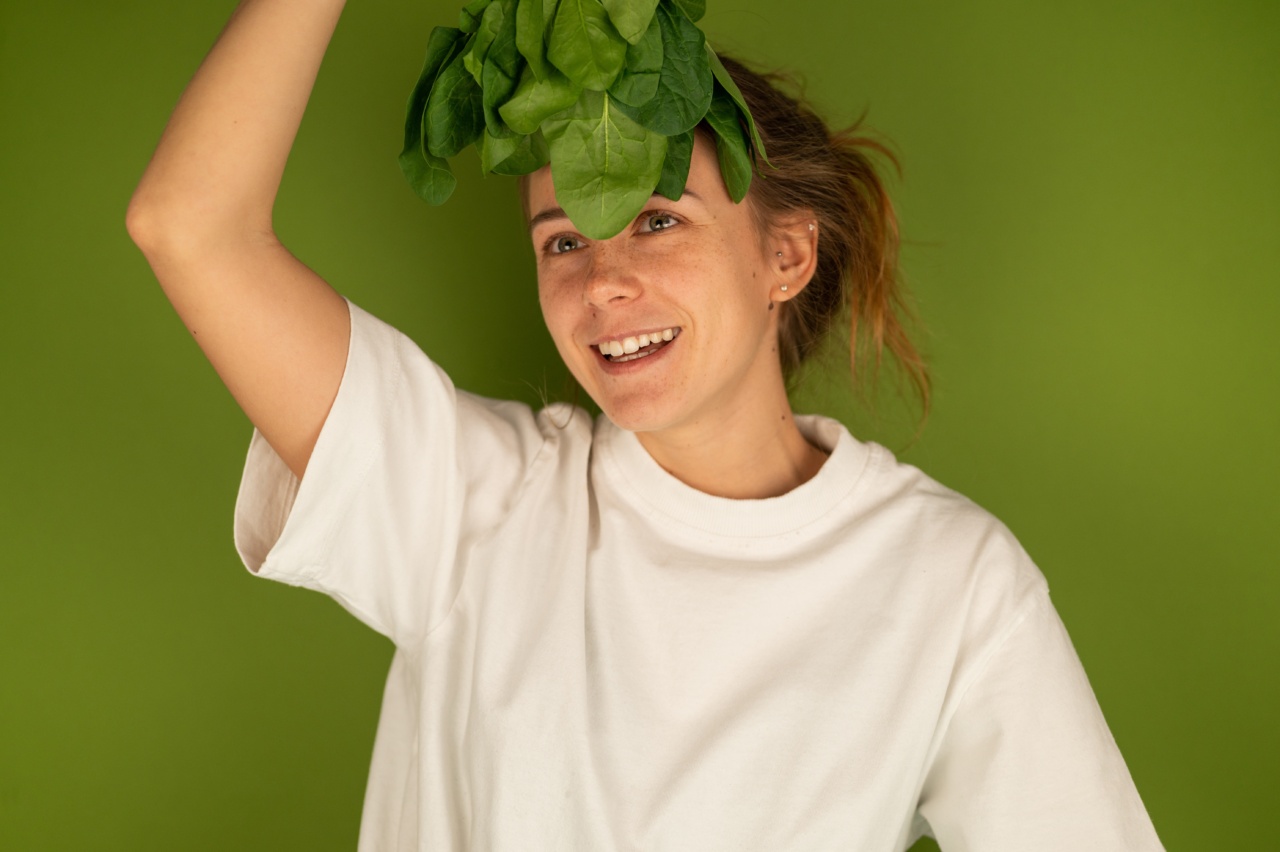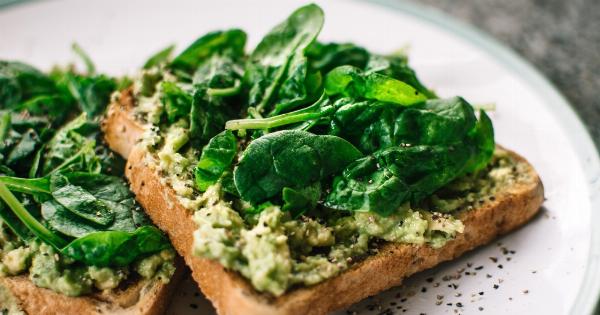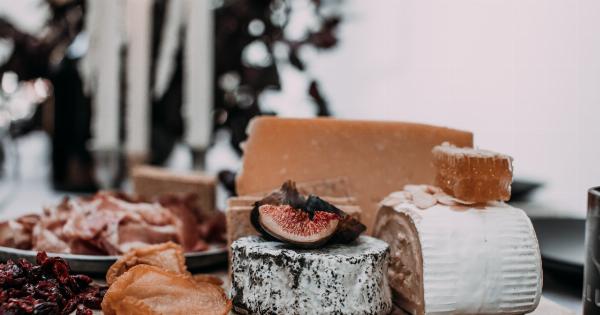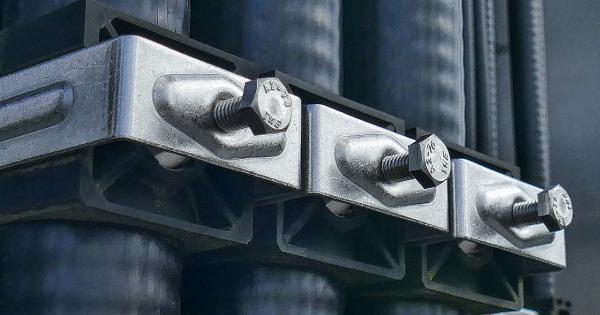Iron is an essential mineral responsible for the production of hemoglobin, a protein found in red blood cells that helps transfer oxygen from the lungs to the body’s tissues.
Additionally, it is essential for a healthy immune system and proper brain function. Most people get their iron from vegetables, specifically spinach, but there are various other foods with high iron content that can provide a healthy alternative.
1. Red Meat
Red meat is a great source of iron and can give about 2.7 milligrams of iron per 100 grams of meat. It also contains vitamin B12, which helps with red blood cell formation and brain function.
However, it is important not to overindulge, as excessive consumption of red meat can lead to various health issues.
2. Chia Seeds
Chia seeds are a great source of iron, providing 7.7 milligrams of iron per 100 grams of seeds. They also contain antioxidants and are a great source of fiber and omega-3 fatty acids, which promote heart and brain health.
3. Lentils
Lentils are a great vegetarian source of iron providing 6.6 milligrams of iron per 100 grams of lentils. Lentils also contain a significant amount of protein and fiber. They are a great addition to salads, soups, stews, and casseroles.
4. Oysters
Oysters are a great seafood source of iron, providing about 5.7 milligrams of iron per 100 grams of oysters.
They are also low in fat, calories and high in protein, and other minerals, including zinc and selenium which are important for healthy immune function.
5. Quinoa
Quinoa is a great source of iron and contains 3.6 milligrams of iron per 100 grams of cooked quinoa. They are also rich in protein, fiber and other minerals, such as magnesium and phosphorus, which promote bone health and strong teeth.
6. Beef Liver
Beef liver is one of the best sources of iron, providing about 6.5 milligrams of iron per 100 gram of liver. It is also a great source of vitamins A and B12, which support healthy vision and nervous system function.
7. Shrimp
Shrimp is a great seafood source of iron, providing about 2.5 milligrams of iron per 100 grams of shrimp. Shrimp is also low in fat, calories and rich in protein, which supports healthy muscle function and growth.
8. Dark Chocolate
Dark chocolate is a tasty source of iron and can provide approximately 6.3 milligrams per 100 grams of chocolate. Additionally, it contains antioxidants that promote various health benefits, such as improved heart function, and cognitive function.
9. Soybeans
Soybeans are a great source of iron, providing about 5.2 milligrams of iron per 100 grams of soybeans. They also contain protein, fiber and other vitamins and minerals, such as manganese, which promotes healthy bone growth and development.
10. Chicken Liver
Chicken liver is another great source of iron, providing about 13.4 milligrams of iron per 100 grams of chicken liver. It is also low in fat and calories and rich in protein, zinc, and vitamins A and B12.
11. Pumpkin Seeds
Pumpkin seeds are a tasty source of iron, providing about 8.8 milligrams of iron per 100 grams of seeds. They are also rich in fiber, magnesium, and healthy fats, which promote good heart health and reduce inflammation.
12. Tofu
Tofu is another great vegetarian source of iron, providing about 5.3 milligrams of iron per 100 grams of tofu. Tofu is also rich in protein, calcium, and vitamin K2, which promotes healthy bones and reduces the risk of cardiovascular disease.
13. Broccoli
Broccoli is a great vegetable source of iron, providing about 0.7 milligrams of iron per 100 grams of broccoli. Additionally, it is rich in vitamins, minerals, and fiber, which promotes healthy digestion and good heart health.
14. White Beans
White beans are a great source of iron, providing about 3.5 milligrams of iron per 100 grams of white beans. They also contain fiber, protein, and other vitamins and minerals, such as potassium, which supports healthy blood pressure levels.
15. Cashews
Cashews are a tasty source of iron, providing about 6.7 milligrams of iron per 100 grams of cashews. They also contain healthy fats, vitamins, and minerals, such as magnesium, which promotes healthy bone and muscle function.
16. Chickpeas
Chickpeas are a great vegetarian source of iron, providing about 4.3 milligrams per 100 grams of chickpeas.
Additionally, they are rich in fiber, protein, and other vitamins and minerals, such as phosphorus, which promotes healthy digestion and strong teeth and bones.
17. Pork
Pork is an additional great source of iron, providing about 1.1 milligrams of iron per 100 grams of pork.
Additionally, it contains other essential vitamins and minerals, such as zinc and vitamin B12, which promote healthy brain function and strong immune function.
18. Sesame Seeds
Sesame seeds are a great source of iron, providing about 15.1 milligrams of iron per 100 grams of seeds.
They also contain healthy fats and other vitamins and minerals, such as magnesium, which promotes bone and muscle function and reduced inflammation.
19. Swiss Chard
Swiss chard is a great vegetable source of iron, providing about 1.8 milligrams of iron per 100 grams of chard. Additionally, it is rich in fiber, vitamins, and minerals, such as vitamin K, which supports healthy blood clotting and strong bones.
20. Sunflower Seeds
Sunflower seeds are a great plant-based source of iron, providing about 5.2 milligrams of iron per 100 grams of sunflower seeds.
Additionally, they are rich in healthy fats, vitamins, and minerals such as magnesium, which promotes the healthy function of muscles and reduced inflammation.
21. Turkey
Turkey is another great source of iron, providing about 1.2 milligrams of iron per 100 grams of turkey meat. Additionally, it’s low in fat and calories and rich in protein, which promotes strong muscle function and growth.
22. Mussels
Mussels are a nutritious and delicious seafood source of iron, providing about 6.7 milligrams of iron per 100 grams of mussels.
Additionally, they are low in calories and fat, rich in protein, and other vitamins and minerals, such as vitamin B12 and selenium, which promote healthy brain function and immune function.
23. Beet Greens
Beet greens are a great vegetable source of iron, providing about 2.7 milligrams of iron per 100 grams of beet greens.
Additionally, they are rich in fiber, vitamins, and minerals, such as vitamin K, which supports healthy blood clotting and promotes strong bones and teeth.
24. Sardines
Sardines are another excellent seafood source of iron, providing about 2.5 milligrams per 100 grams of sardines. Additionally, they are rich in omega-3 fatty acids and selenium, which promotes healthy heart function and boosts the immune system.
25. Black Beans
Black beans are another great source of iron, providing about 3.6 milligrams of iron per 100 grams of black beans.
Additionally, they are rich in fiber, protein, and other vitamins and minerals, such as potassium, which supports healthy blood pressure levels.
26. Tomatoes
Tomatoes are a great vegetable source of iron, providing about 0.5 milligrams per 100 grams of tomatoes. Additionally, they are rich in antioxidants, such as lycopene, which promotes healthy vision and can reduce the risk of cancer.
27. Turkey Liver
Turkey liver is an additional great source of iron, providing about 8.4 milligrams per 100 grams of turkey liver.
Additionally, it’s low in fat, high in protein and other essential vitamins and minerals, such as vitamins A and B12, which promote healthy brain function and immune function.
28. Chickpea Flour
Chickpea flour is a great alternative to wheat flour and is also rich in iron, providing about 3.4 milligrams of iron per 100 grams of chickpea flour.
Additionally, it is gluten-free, rich in fiber, and other essential vitamins and minerals, such as magnesium which promotes healthy bone and muscle function.
29. Beef
Beef is a great source of iron, providing about 2 milligrams of iron per 100 grams of beef. Additionally, it contains other essential vitamins and minerals, such as zinc and vitamin B12, which promote healthy brain function and immune function.
30. Kidney Beans
Kidney beans are another excellent source of iron, providing about 3.5 milligrams of iron per 100 grams of kidney beans.
Additionally, they are rich in fiber, protein, and other essential vitamins and minerals, such as potassium, which supports healthy blood pressure levels.
Conclusion
In conclusion, spinach is not the only source of iron. There are various other sources of iron-rich foods available, which provide essential nutrients that promote a healthy well-being.
Incorporating these foods in a balanced diet can help prevent iron deficiency or anemia while providing other essential vitamins and minerals to support healthy body function.






























